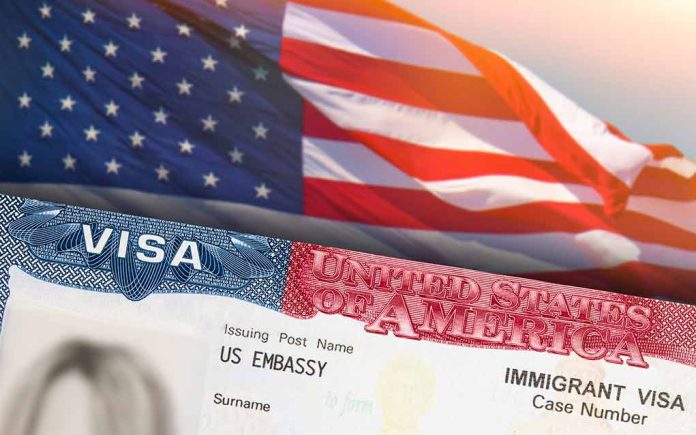
The misuse of student visas for immigration fraud is a growing global issue threatening educational integrity and necessitating stringent countermeasures.
Key Takeaways
- Immigration fraud through student visas impacts multiple countries, requiring improved oversight and cooperation.
- ICE certification processes and DHS monitoring aim to ensure the legitimacy of international student programs.
- India and Bangladesh present significant challenges in fraudulent applications, often involving fake transcripts and identities.
- International collaboration is crucial to safeguarding the integrity of higher education and preventing exploitation.
Impact of Student Visa Fraud on Global Education
Countries worldwide face a mounting crisis of student visa fraud, with fraudulent activities threatening the bedrock of international education. Incidents in Missouri and Los Angeles underscore the widespread existence of fake institutions. In Canada, thousands of students disappear annually, highlighting the need for a robust international response. The UK faces similar challenges, rife with scams capitalizing on lax verification procedures, which allow criminals to secure visas and financial aid under false pretenses.
The University of Farmington operation in Michigan threw this pervasive corruption into stark relief, indicating how student visa misuse is transforming academic establishments into vehicles of fraud. This requires strengthened oversight and cooperation to prevent systemic exploitation and maintain educational integrity on a global scale.
Addressing Allegations and Ensuring Oversight
Concerns about misuse of the U.S. student visa system require attention. DHS’s 2023 Overstay Report has been criticized for overstating international student visa overstays. Critics argue it lacks reliable data due to the difficulty in tracking students who change status. Meanwhile, allegations of widespread fraud in student admissions have been countered by reporting stringent ICE certification processes for schools admitting international students.
Fraudulent admission applications underscore a pressing need for reform. Approximately 65% of applications from India and Bangladesh are suspect, frequently involving fake identities. This fraud burdens admissions offices, particularly at under-resourced institutions, exacerbating the challenge of maintaining academic integrity.
🚨 CANADA’S STUDENT VISA SCANDAL: NEARLY 50,000 “NO-SHOW” STUDENTS EXPOSED 🚨
Canada’s international student visa system is under fire after shocking figures reveal 49,676 foreign students failed to comply with their visas, skipping the schools where they were meant to study.… pic.twitter.com/XN2WNXISuT
— Jim Ferguson (@JimFergusonUK) January 16, 2025
Future Directions: Emphasizing International Cooperation
The U.S. for Success Coalition has launched a task force to explore solutions, advocating for enhanced collaboration between agencies. Stronger standards for recruiting agencies and better data sharing within the DHS are proposed measures. Collaboration is vital to protect education systems from fraud and prepare for future challenges posed by changing student demographics, with India becoming a significant recruitment source.
As visa systems struggle with corruption, international coordination is crucial to uphold educational integrity and support legitimate students. This collective effort can help to secure the future of international education against fraud, ensuring it remains a legitimate pathway for cultural and academic exchange.





